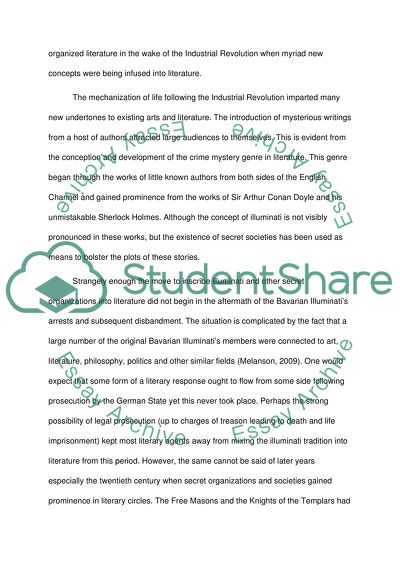Cite this document
(“Illuminati in English Literature Research Paper”, n.d.)
Illuminati in English Literature Research Paper. Retrieved from https://studentshare.org/literature/1446284-illuminati
Illuminati in English Literature Research Paper. Retrieved from https://studentshare.org/literature/1446284-illuminati
(Illuminati in English Literature Research Paper)
Illuminati in English Literature Research Paper. https://studentshare.org/literature/1446284-illuminati.
Illuminati in English Literature Research Paper. https://studentshare.org/literature/1446284-illuminati.
“Illuminati in English Literature Research Paper”, n.d. https://studentshare.org/literature/1446284-illuminati.


